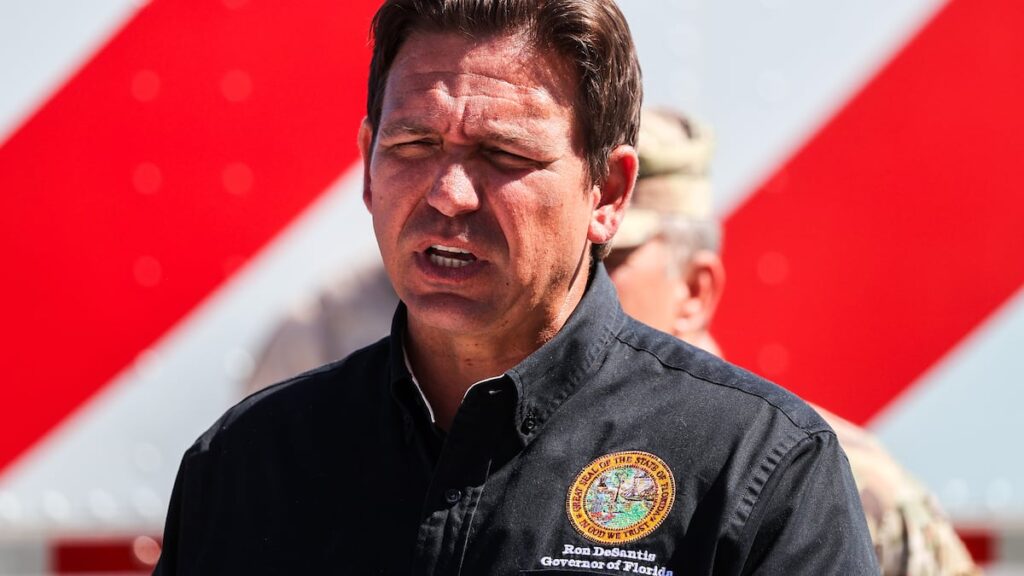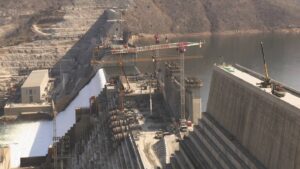
TALLAHASSEE — Nearly three years ago, when Hurricane Ian devastated a bridge in southwest Florida, Governor Ron DeSantis used his emergency powers to rapidly mobilize contractors, reconstructing the bridge in under three days. Now, the Republican governor is employing those same powers for a different purpose: constructing an immigration detention center deep in the Everglades, dubbed ‘Alligator Alcatraz’, in just one week.
Relying on an emergency order issued in January 2023, DeSantis is seizing county land to build a facility capable of housing 3,000 detained immigrants. This move comes despite the fact that the surge of Cuban and Haitian migrants arriving by boat in the Florida Keys, which initially prompted the order, has long subsided. The order, citing then-President Joe Biden’s “inadequate” immigration response, has been repeatedly extended.
“This is not our first rodeo,” DeSantis told Fox News while touring the site, now a grid of tents and trailers. “The detention of illegal aliens is a little bit different, but logistics, we know how to do that.”
Environmental and Political Concerns
The rapid construction of the detention center has alarmed environmentalists and local leaders, who question the necessity and legality of the governor’s actions. “What is the emergency in the state of Florida that we need to build this facility under this timeframe?” asked Sen. Lori Berman, a Boca Raton Democrat. “We just really can’t understand.”
Sen. Shevrin Jones, a West Park Democrat, criticized the project, stating, “Florida is building a prison camp in the Everglades under the false cover of an emergency.”
‘Turbo-speed’ Construction
The public first learned of ‘Alligator Alcatraz’ on June 18, less than two weeks before its projected opening. Florida Attorney General James Uthmeier revealed the plans during a Fox News segment, complete with a helicopter tour of the site. This revelation prompted Ra Schooley, a former flight instructor, to alert environmental leaders.
By June 21, the Federal Aviation Administration had issued a notice closing the airstrip for 99 days, and construction was underway. The state bypassed typical procurement processes, moving swiftly under DeSantis’ emergency authorization.
“Time is of the essence,” said Kevin Guthrie, head of Florida’s Department of Emergency Management. “We must act swiftly to ensure readiness and continuity in our statewide operations to assist the federal government with immigration enforcement.”
Precedents and Legal Implications
DeSantis’ actions are not without precedent. In Texas, Governor Greg Abbott used emergency powers to seize control of a park in Eagle Pass for immigration enforcement. The park was eventually returned to the public after border crossings decreased.
In Florida, the emergency order attributes the immigration crisis to the Biden administration. Despite changes in federal leadership, the order remains active, citing a continued influx of illegal immigrants.
According to a Pew Research study cited by Uthmeier, Florida’s undocumented population grew by 400,000 from 2019 to 2022, reaching 1.2 million people.
Florida’s Legislature could theoretically halt or limit the emergency order, but such actions are rare. Legal experts note that while emergency powers are intended to provide flexibility, their broad use can be controversial.
Expert Opinions and Future Implications
Chris Reynolds, an emergency management expert, described DeSantis’ extended emergency over immigration as “unusual.” He emphasized that emergency laws are meant to be flexible but warned against potential overreach.
“Two years does seem like an awful stretch,” Reynolds said. “Is it against the law? No.”
Despite concerns, Reynolds noted that the detention center does not appear to divert resources from Floridians during natural disasters. Instead, he views it as a testament to Florida’s logistical capabilities.
As the construction of ‘Alligator Alcatraz’ progresses, the debate over the use of emergency powers in Florida continues, with potential legal challenges on the horizon. The situation underscores the complexities of balancing state authority, environmental concerns, and immigration policy.






